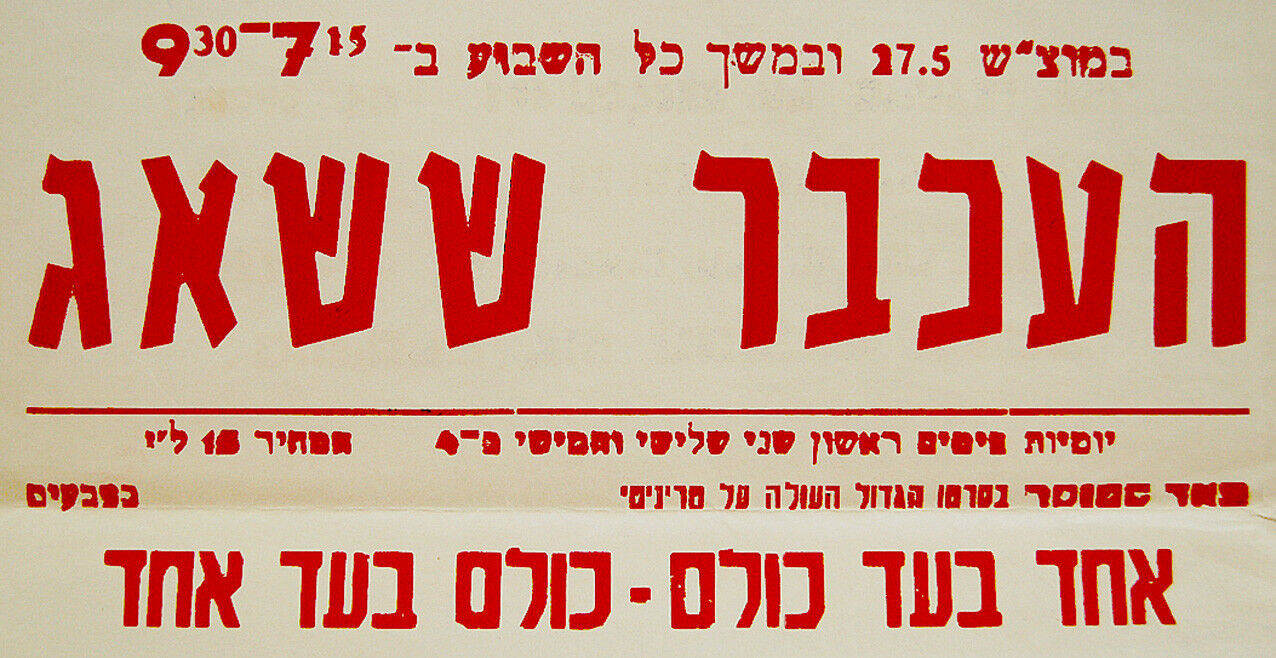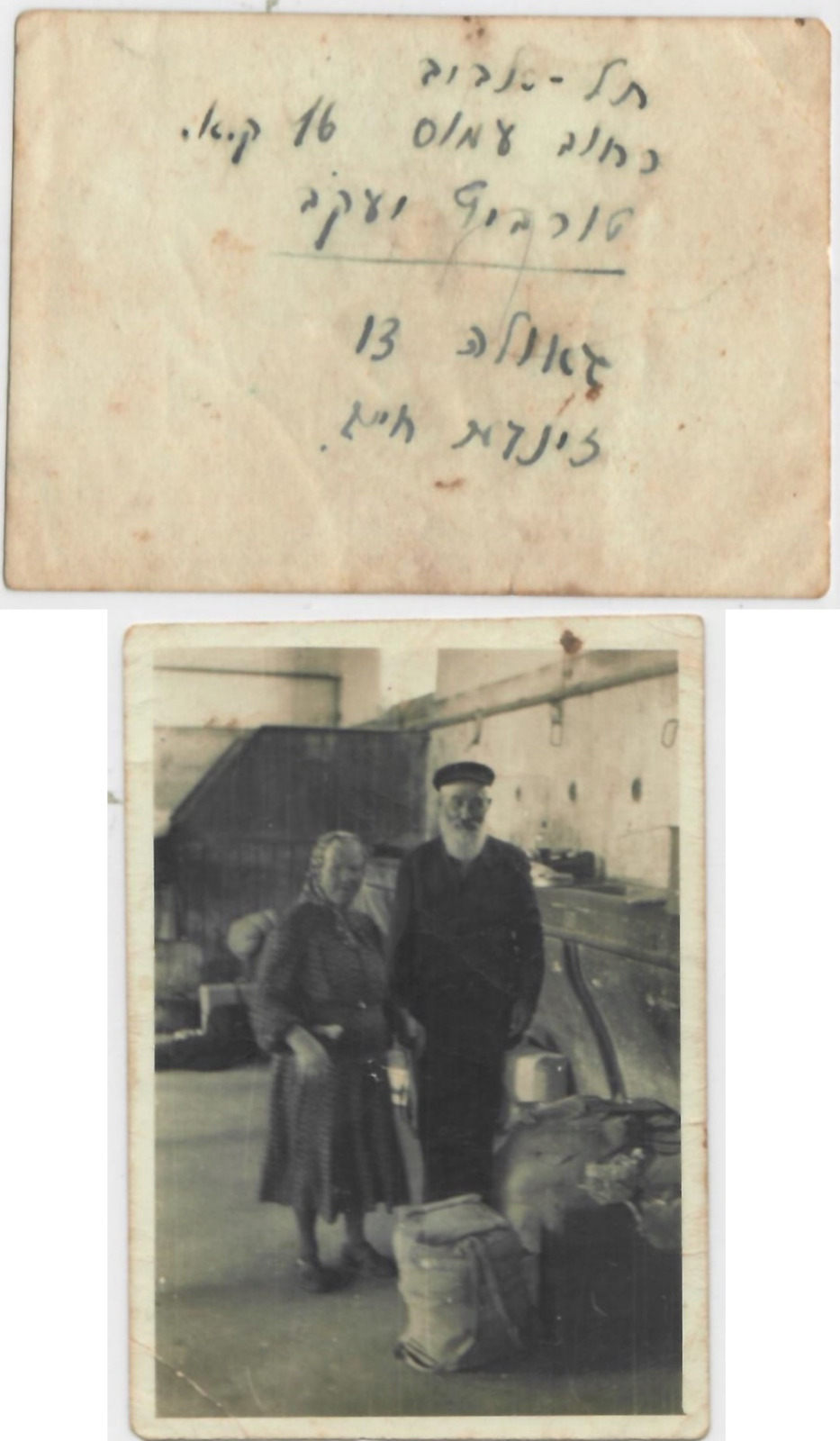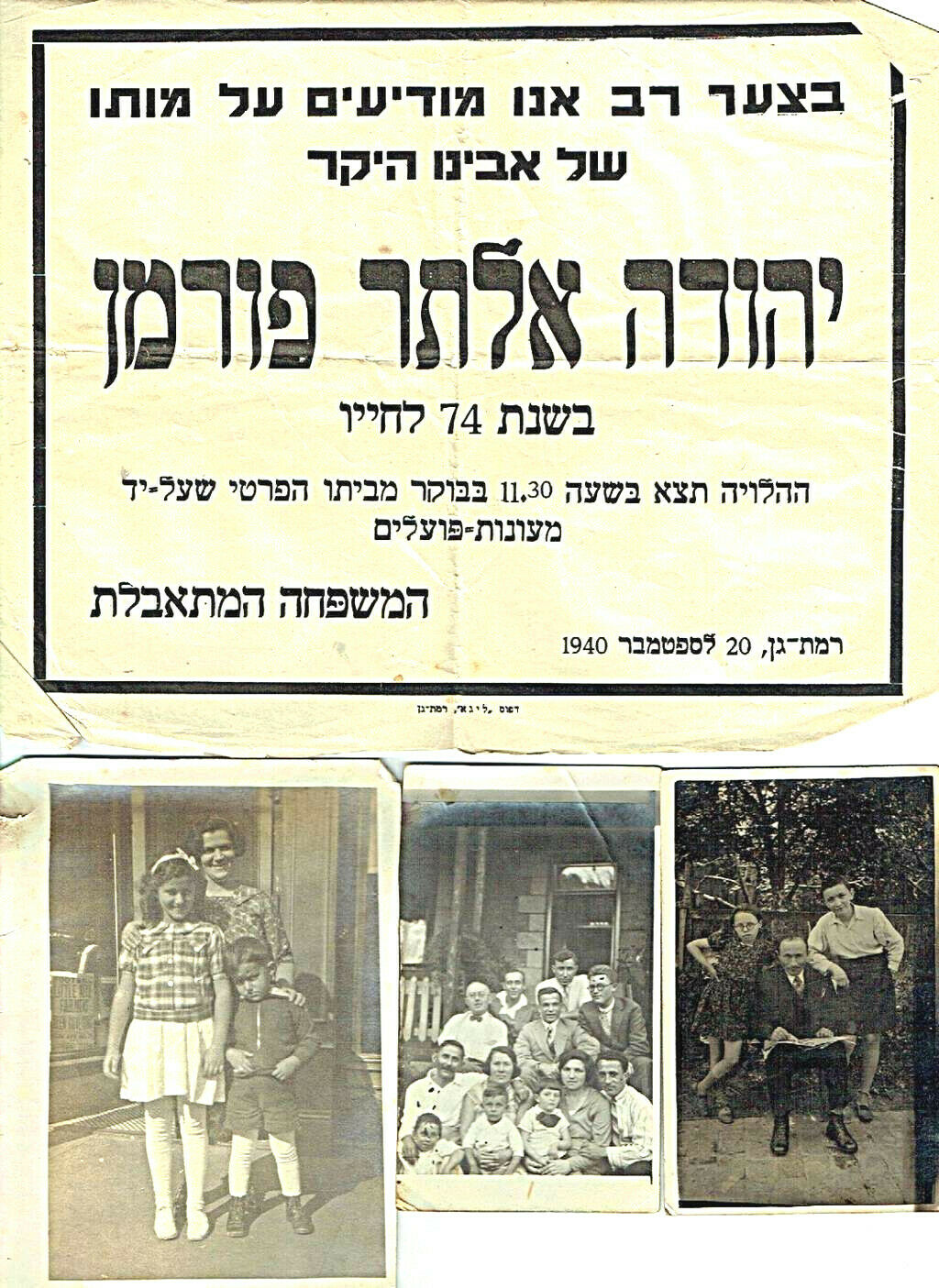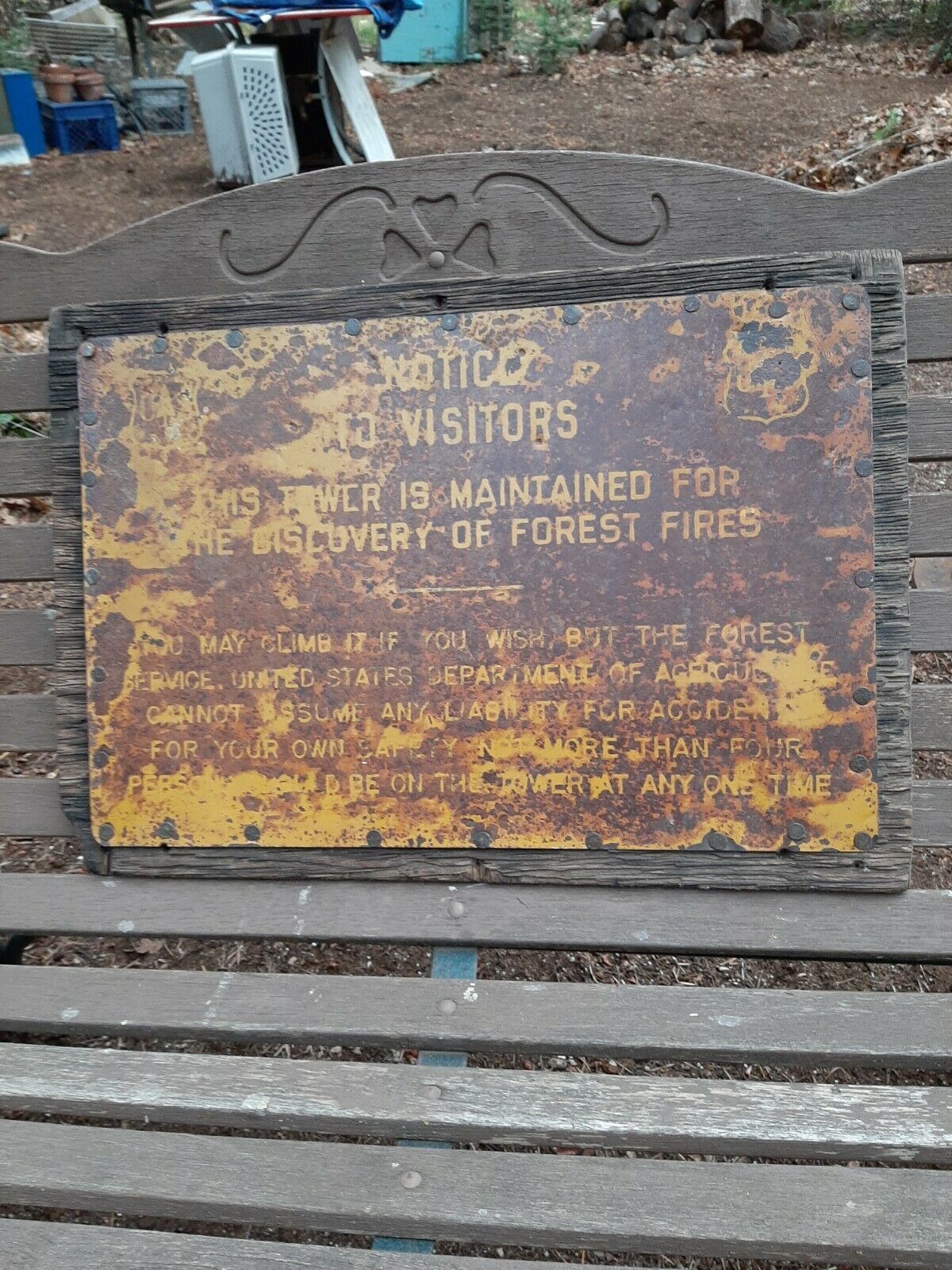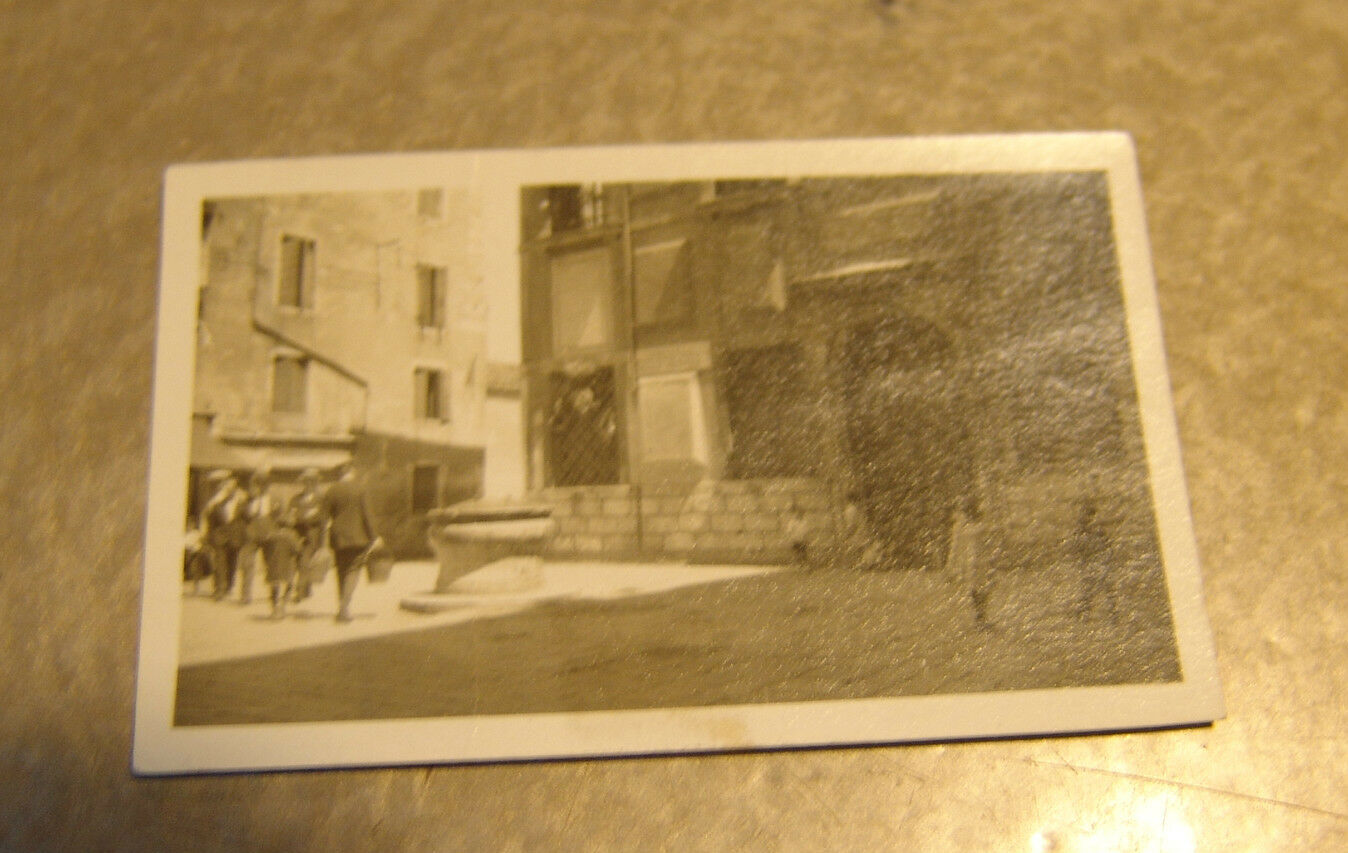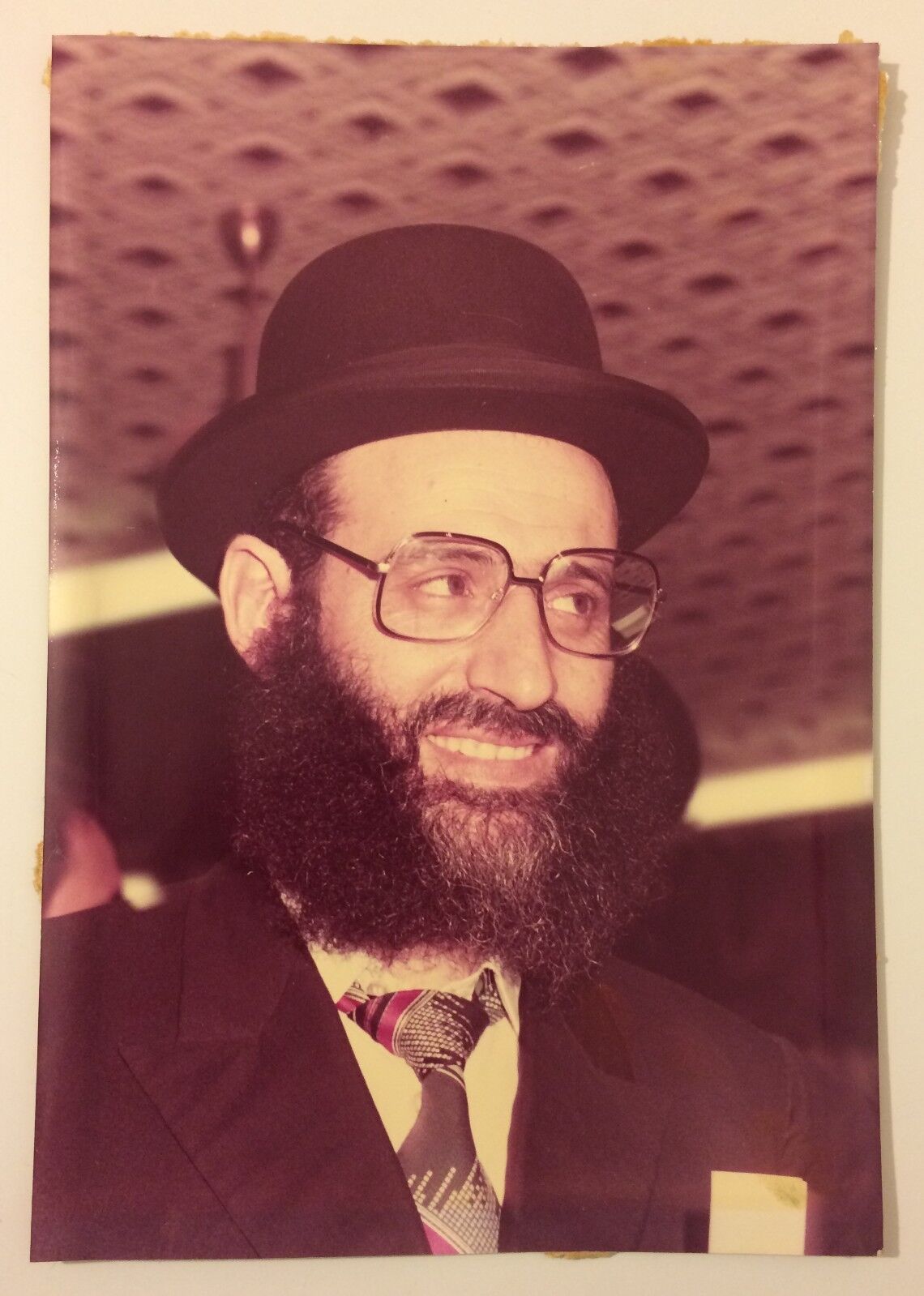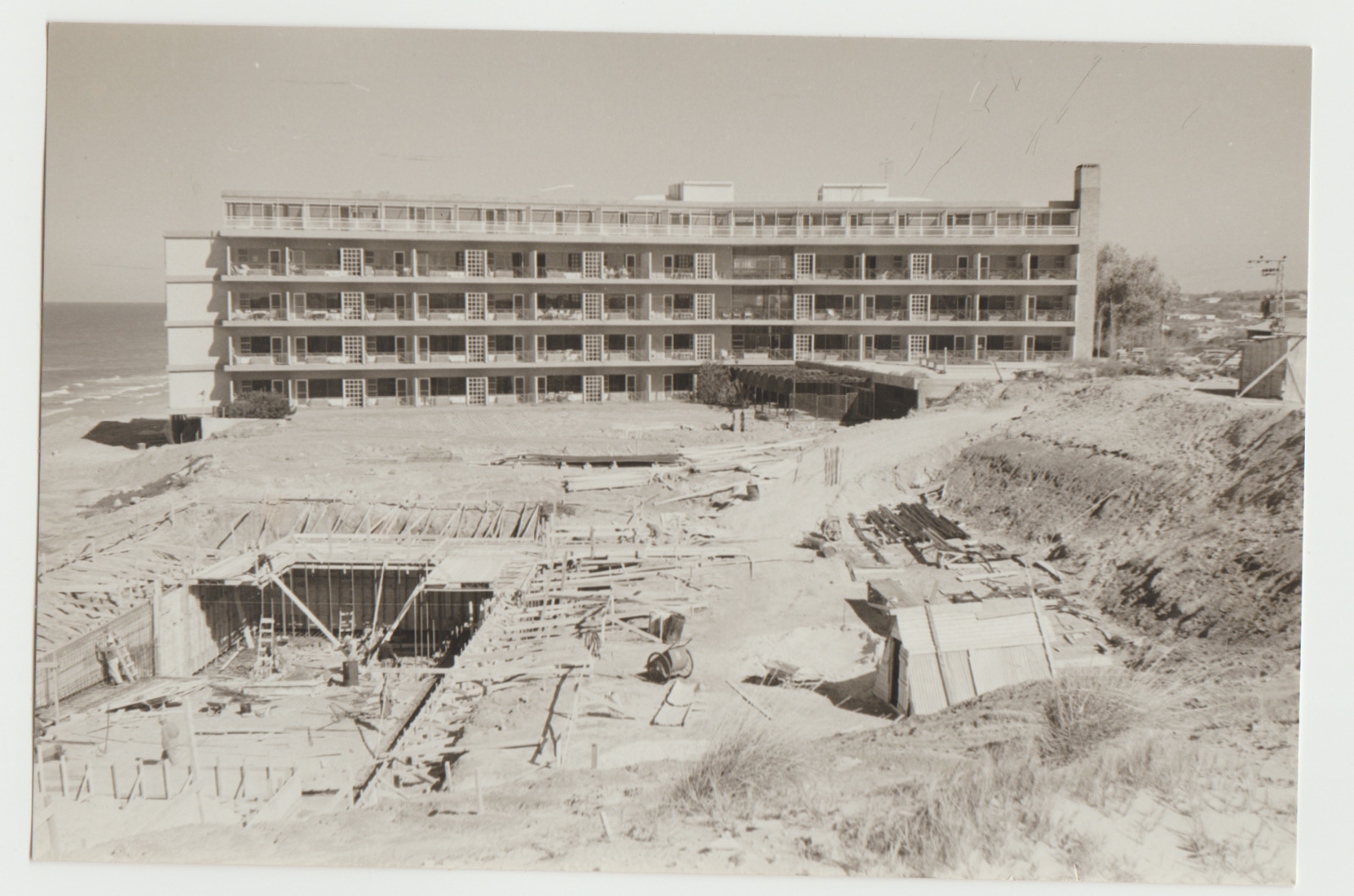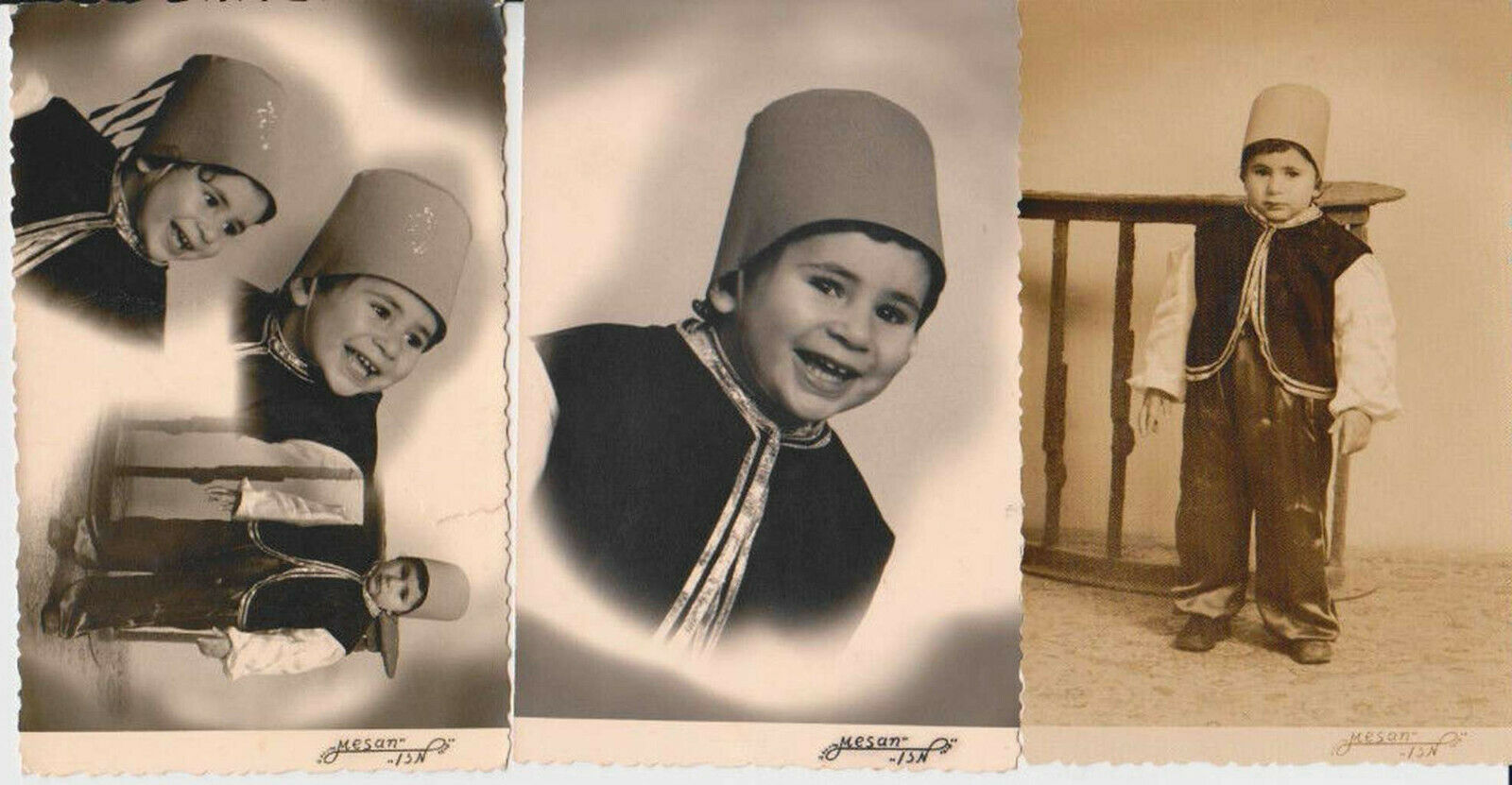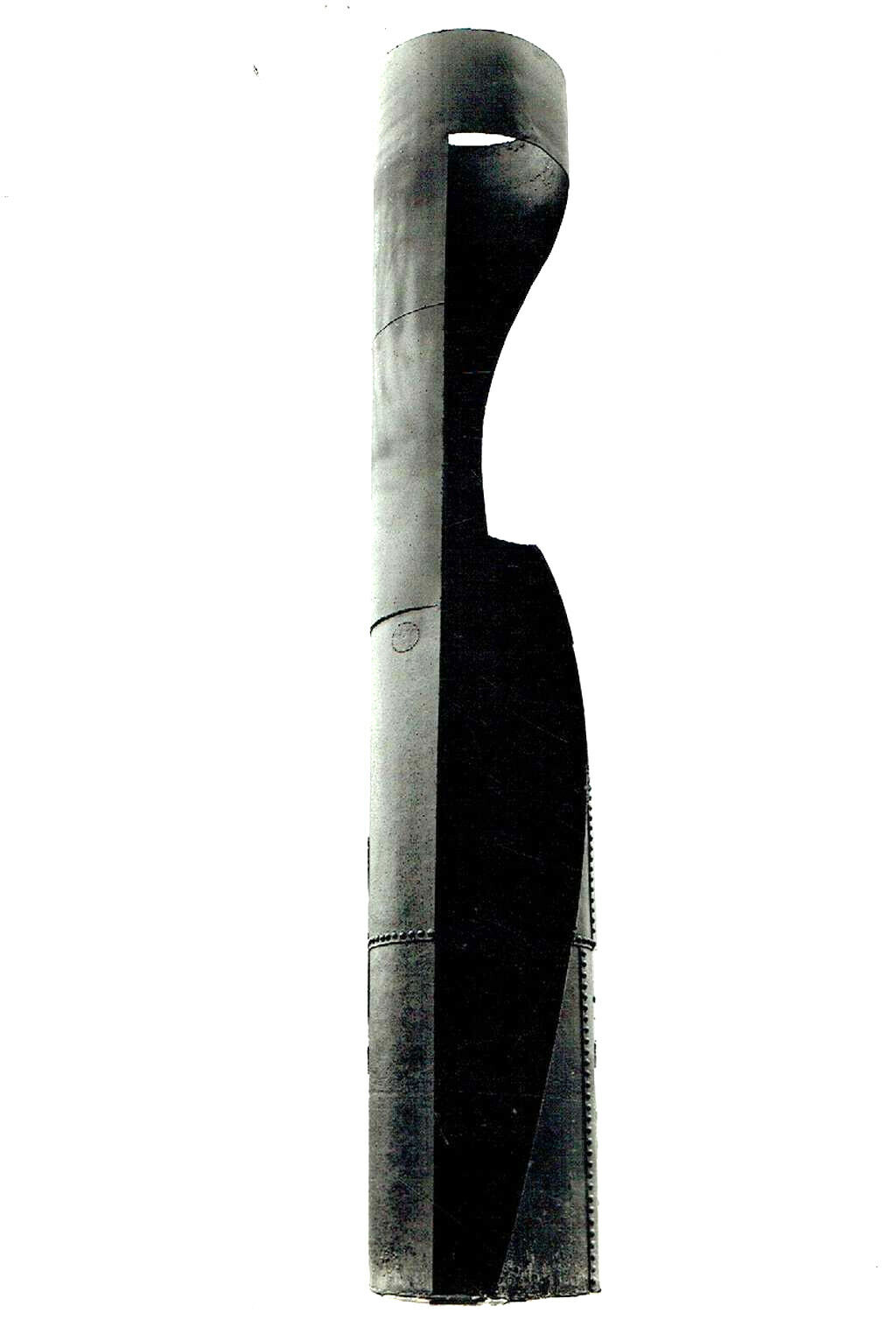-40%
1959 Israel THE MOUSE THAT ROARED Vintage MOVIE FILM POSTER Hebrew PETER SELLERS
$ 34.32
- Description
- Size Guide
Description
DESCRIPTION:
Here for sale is an EXCEPTIONALY RARE and ORIGINAL
vintage
Hebrew-Israeli SMALL POSTER for the ISRAEL
projection
of the legendary classic CULT film - movie "
THE MOUSE THAT ROARED
" which was directed in 19
59
by
Jack Arnold
, Starring , Among many others PETER SELLERS in 3 roles ,
JEAN SEBERG and LEO McKERN
. The
Hebrew
poster was created ESPECIALLY for the Israeli
projection
of the film . Please note : This is Made in Israel authentic THEATRE POSTER , Which was published by the Israeli distributors of "CINEMA
LILI" in RAMAT GAN - GIV'ATAIM ISRAEL
for the Israeli projection of the film
.
you can be certain that this surviving copy is ONE OF ITS KIND. A bonus to the buyer , A matinee show of a BUD SPENSER action comedy film. Size 7" x 12" . The poster is in very good condition. Used.
One folding mark which will definitely disappear under a framed glass.
( Pls look at scan for accurate AS IS images )
.
Poster will be sent in a special protective rigid sealed
package
.
PAYMENTS
:
Payment method accepted : Paypal & All credit cards
.
SHIPPING
:
Shipp worldwide via registered airmail is . Poster will be sent in a special protective rigid sealed package.
Handling around 5-10 days after payment.
The Mouse That Roared is a 1959 British satirical Eastman Color comedy film based on Leonard Wibberley's novelThe Mouse That Roared (1955). It stars Peter Sellers in three roles: Duchess Gloriana XII; Count Rupert Mountjoy, the Prime Minister; and Tully Bascomb, the military leader; and co-stars Jean Seberg. The film was directed by Jack Arnold, and the screenplay was written by Roger MacDougall and Stanley Mann. Contents [hide] · 1Plot · 2Cast · 3Production · 4Adaptations o 4.1Television pilot · 5Sequel · 6References · 7External links Plot[edit] The minuscule European duchy of Grand Fenwick is bankrupted when an American company comes up with a cheaper imitation of Fenwick's sole export, its fabled Pinot Grand Fenwick wine. Crafty prime minister Count Mountjoy (Peter Sellers) devises a plan: Grand Fenwick will declare war on the United States, then surrender, taking advantage of American largesse toward its defeated enemies to rebuild the defeated nation's economy. Grand Duchess Gloriana (also Sellers) is hesitant but agrees to the plan. Mild-mannered game warden Tully Bascome (also Sellers) is charged as Field Marshal to lead the Fenwick troops, aided by sergeant Will Buckley (William Hartnell). The contingent of 20 soldiers in medieval chain mail books passage across the Atlantic on a small merchant ship, arriving in New York Harbor during an air-raid drill that leaves the city deserted and undefended. They chance upon a Civil Defense truck and are mistaken for invading Martians, prompting an investigation by blustering but ineffectual General Snippet (MacDonald Parke). Puncturing the tires of the general's jeep with their bows and arrows, the Fenwick troops take him and four NYPD officers hostage. Still looking for a place to surrender, Tully and Will stumble across Dr. Alfred Kokintz (David Kossoff), whose invention of the Q Bomb – capable of destroying an entire continent – has prompted the defense drills. He has built a football-sized prototype of the unstable bomb, which Tully takes possession of. With Kokintz and his attractive daughter Helen (Jean Seberg) as additional hostages, Tully declares victory and returns with them to Grand Fenwick. The duchess indulges Tully's victory, and the prime minister resigns in disgust at Tully's blunder, leaving him as acting prime minister. When the incident is discovered, the U.S. government is thwarted from retaking the weapon and hostages by force, fearing the dishonor of attacking such a small and defenseless nation. Instead, they send the U.S. Secretary of Defense (Austin Willis) to discuss terms of surrender and get back the bomb. Meanwhile, Grand Fenwick receives competing offers of defensive aid from each of the world's powers, in exchange for the weapon. Tully becomes smitten with Helen, who initially despises him for taking them but falls for his simple charm. Then Snippet and Mountjoy conspire to steal the bomb and return it (and Helen) to America, but Tully gives chase and retrieves it. The Secretary of Defense and Tully agree to terms: the knock-off wine will be taken off the market, Grand Fenwick will receive monetary aid from the US, Helen and her father will remain in Grand Fenwick, and so will the bomb: held by "the little countries of the world" as a weapon of last resort if the superpowers refuse to disarm. Checking the bomb for damage, Tully, Helen, and Dr. Kokintz find it was "a dud" all along, and leave it in the dungeon, conspiring to keep its impotence secret. However, after they leave, a mouse emerges from it, and it appears to rearm, sitting ready to explode if disturbed. Cast[edit] · Peter Sellers as Grand Duchess Gloriana XII / Prime Minister Count Rupert Mountjoy / Tully Bascombe · Jean Seberg as Helen Kokintz · William Hartnell as Will Buckley · David Kossoff as Doctor Alfred Kokintz · Leo McKern as Benter · MacDonald Parke as General Snippet · Austin Willis as United States Secretary of Defense · Timothy Bateson as Roger · Monte Landis as Cobbley · Alan Gifford as Air Raid Warden · Colin Gordon as BBC Announcer · Harold Kasket as Pedro Production[edit] Liberties were taken in the film adaptation to display Peter Sellers' versatile comedic talents. The lead character of the book is the Duchess Gloriana XII, an attractive young royal in the manner of the young Queen Elizabeth II and Princess Grace of Monaco. In the film version, however, Peter Sellers plays the role as a parody of an elderly Queen Victoria (who thinks the President of the United States is Calvin Coolidge), whilst his Mountjoy is a parody of Benjamin Disraeli. The Marseilles andNew York Harbor sequences were filmed in Southampton, England; the presence of the RMS Queen Elizabeth ocean liner there was a lucky coincidence.[citation needed] In addition, in the novel, an encounter with the New York Police Department leads to bloodshed that complicates peace negotiations; this does not appear in the movie. Additionally, in the book, both Tully and Helen are with Dr. Kokintz when he discovers the bomb is a dud, and it is Tully who suggests that they keep that fact a secret. Title designer Maurice Binder added a mouse in an opening joke with the Columbia Pictures logo.[citation needed] One scene has diplomats playing a board game called Diplomacy, although the game more resembles Monopoly rather than the game Diplomacy.[citation needed] Adaptations[edit] Television pilot[edit] In 1964, Jack Arnold obtained exclusive television rights for The Mouse That Roared from Leonard Wibberley.[2] He produced and directed[3] a colour television pilotwith ABC Television and Screen Gems called The Mouse That Roared, starring Sid Caesar as the Duchess, Mountjoy, and Tully, and co-starring Joyce Jameson,Sigrid Valdis, and Richard Deacon. However, the pilot was not picked up for production.[4] It was filmed by Richard H. Kline.[5] Sequel[edit] Richard Lester directed a film sequel, The Mouse on the Moon (1963), adapted from Wibberley's eponymous 1962 novel. 'The Mouse That Roared' Wins War Against U.S.; Guild Comedy Depicts Invasion by Group of Bowmen Who Fail in Bid to Lose Peter Sellers Takes Three Roles, One a Woman, in English Film of Novel By BOSLEY CROWTHER Published: October 27, 1959 THE joke about the small country that declares war on the United States in the expectation of being quickly defeated and then rehabilitated by the conqueror is snowballed into a rambunctious satiric comedy in "The Mouse That Roared," a British item that opened at the Guild yesterday. Although it doesn't have Alec Guinness in it, it has a clear Guinness comic quality, and as the next best thing to Mr. Guinness, it has Peter Sellers playing three broad roles. One is the role of the Prime Minister of this small country—Grand Fenwick, it is called—which, acting on his slick suggestion, declares war on the United States. The reason is that the country is going to the dogs because its wine, which is its single export, is being beat out by a California brand, and the only hope of national salvation is to have the United States move in. The second role is that of the Grand Duchess of Grand Fenwick, a dotty old dame who accedes to the suggestion of the Prime Minister with the warning." I don't want anyone hurt." And the third role performed by Mr. Sellers is that of the Hereditary Field Marshal and Grand Constable who charily leads a rather nervous little band of twenty mail-clad bowmen on a token invasion of the United States. Up to this point, the brash maneuver proceeds nicely and hilariously, with the mousey invaders crossing the Atlantic in a dismally inadequate French tug. But when they reach this country, their plan for being defeated gangs aft agley because they're taken for men from Mars during an air-raid drill in New York City and come into possesson of a super-deadly bomb. With this and the bomb's inventor, his beautiful daughter, a captured general and four dumb cops, the invaders return to their own country, victorious instead of whipped. Here, then, is the conclusion of the popular joke. The mouse, upsetting expectations, phenomenally overcomes the lion. But it isn't quite the conclusion of the satiric film. And what follows in the way of resolving the embarrassment of Grand Fenwick Laving "the bomb," while all other countries plead to get it, does wear a little thin. Indeed, the thinness comes apparent while those bowmen are clomping around New York, clumsily capturing the corpulent general and fumbling the football-shaped bomb. There is only so much an inventor can do with that hyperbolic joke, and even though this film's makers do it, it comes a little strained. However, we've got to hand it to Roger MacDougall and Stanley Mann, who wrote the script; to Jack Arnold, who directed, and to all the people who play in this lively jape. They whip up a lot of cheerful nonsense that makes wild fun of the awesome instruments of modern war and does so in terms of social burlesque and sheer Mack Sennett farce. Mr. Sellers is the dominant performer and is most persistent in the role of the horn-rimmed-spectacled Field Marshal who is carried away by zeal. But his prissy primness as the duchess and his elegant swash as the Prime Minister make for a great deal of amusement in the British comedy vein. David Kossoff is droll as the inventor, Jean Seberg looks better than she's looked yet as his daughter and William Hartnell is funny as a sergeant with a hoarse, booming Cockney voice. The film is done in color, which gives it dash and class. And a gay muscal score by Edwin Astley frolics all over the place. THE MOUSE THAT ROARED; screen play by Roger MacDougall and Stanley Mann; from the novel by Leonard Wibberley; directed by Jack Arnold; produced by Walter Shenson; presented by Carl Foreman; a Highroad Picture released by Columbia Pictures. At the Guild Theatre, Fiftieth street east of Fifth Avenue. Running time: eighty-three minutes. Grand Duchess Gloriana . . . . . Peter Sellers Prime Minister count Montjoy Tully Bascombe Helen . . . . . Jean Seberg Professor Kokintz . . . . . David Kossoff Will . . . . . William Hartnell Roger . . . . . Timothy Bateson Cobbley . . . . . Monty Landis Pedro . . . . . Harold Krasket Benter . . . . . Leo McKern B. B. C. Announcer . . . . . Colin Gordon Snippet . . . . . MacDonald Parke Secretary Defense . . . . . Austin Willis O'Hara . . . . . George Margo Mulligan . . . . . Richard Gatehouse Cunard Captain . . . . . Stuart Sanders Cunard 2d Officer . . . . . Ken Stanley Many critic have panned this 1959 movie as being outdated. They say the satire is no longer relevant. They question the whole premise of the film and accuse it of being unbelievable. I must conclude that these are the same people that take life in general much too seriously and can't overlook the flaws of a film and just enjoy it. They probably take Road Runner cartoons very seriously also. After all, how can a coyote fall off a five hundred foot cliff, make a coyote shaped impression in the ground below, and survive? With the admonishment to just sit back and enjoy it, this is a great film for Peter Sellers fans. He plays three roles in this story about the smallest country in the world declaring war on the United States. The Duchy of Grand Fenwick is located in the French Alps and has a total area of fifteen and three quarters square miles. The army of Grand Fenwick consists of twenty uninspired volunteers. Their weapon is the longbow and their uniforms are chain mail. They are led Will Buckley (William Hartnell) who is their sergeant and Tully Bascombe (Peter Sellers) who is the hereditary Field Marshall for the Duchy of Grand Fenwick. The prosperity of the country depends solely on its main export, a wine called Pinot Grand Fenwick, and the United States is the main market for this wine. The country prospered until a California wine producer bottled an imitation of the wine and called it Pinot Grand Enwick. The market for Pinot Grand Fenwick soon dried up in the United States because of a vast advertising campaign by the imitators. This turned the small country into a state of crisis. The prime minister sent three protests to the United States about the imitation wine but all three protests went unanswered. The parliament decided that the only way out of their predicament was to declare war on the United States, lose that war, and collect aid. As luck would have it, the United States has scheduled a practice air raid alert for New York City on the day the Grand Fenwick army enters The Port of New York on their hired tug boat. All of the inhabitants of New York are underground in air raid shelters and the city is deserted. The alert is being held because of the invention of a very powerful nuclear device called the Q- Bomb. The Grand Fenwickian army can find no one to so they can begin collecting their foreign aid. They wander around looking for someone to surrender to until they are spotted by a Civil Defense decontamination team in Central Park. The decontamination team thinks they are invaders from outer space because of their uniforms. Soon, word spreads all around the city that Martians have invaded in great numbers. The Grand Fenwick army ends up at The New York Institute for Advanced Physics where, unbeknownst to anyone, Professor Kokintz, the inventor of the bomb, has built a working model. The Grand Fenwick army captures the professor, his daughter, the Q-Bomb, a U.S. Army General and four New York policemen. Upon their arrival back in Grand Fenwick, Tully Bascombe informs the duchess that they won the war. This statement throws the government of Grand Fenwick into total chaos. They'd been planning for a loss, not a win. Both sides of parliament resign in protest and Tully Bascombe is elevated to the post of Prime Minister. Many countries in the world rally around the small country and offer to help protect them against an attack. Each country wants to take the Q-Bomb home for safekeeping. The matter is resolved when the United States surrenders and negotiations are held. It is agreed that the imitation wine will be taken off the market. Grand Fenwick also demands a million dollars. The U.S. negotiator insists that they may have to take a billon dollars. Grand Fenwick also demands that they keep the Q-bomb and that there is a general disarmament supervised by the small neutral nations of the world. If that doesn't happen, they threaten to explode the bomb. Synopsis by Hal Erickson The economy of the teeny-tiny European duchy of Grand Fenwick is threatened when an American manufacturer comes up with an imitation of Fenwick's sole export, its fabled wine. Crafty prime minister Count Mountjoy (Peter Sellers) comes up with a plan: Grand Fenwick will declare war on the United States. Grand Duchess Gloriana (Peter Sellers again) is hesitant: how can meek little Grand Fenwick win such a conflict? Mountjoy explains that the plan is to lose the war, then rely upon American foreign aid to replenish Grand Fenwick's treasury. Bumbling military officer Tully Bascombe (Peter Sellers yet again) leads his country's ragtag army into battle. They cross the Atlantic in an ancient wooden vessel, then set foot on Manhattan Island, fully prepared to down weapons and surrender. But New York City is deserted, due to an air raid drill. While wandering around, Sellers comes upon atomic scientist David Kossoff and the scientist's pretty daughter Jean Seberg. Kossoff has been working on the deadly "Q Bomb," a football-sized weapon with the destructive capacity of a hundred hydrogen bombs. Suddenly seized with patriotic fervor, Tully captures Kossoff, his daughter and the bomb and brings them all back to Grand Fenwick. Tully has "won" the war-precisely what he'd been told not to do. The upshot of this "victory" is that every world power converges upon Grand Fenwick to claim the Q Bomb for themselves. The satire is heavy-handed at times, but The Mouse That Roared contains several unforgettably hilarious moments, including one startling "false ending." One of the best gags involves the Columbia Pictures logo--a bit frequently cut from TV showings, worse luck. Based on one of the many "Grand Fenwick" novels by Leonard Wibberly, The Mouse That Roared was a success, yielding a Peter Sellers-less sequel, 1963's Mouse on the Moon. Review by Michael Betzold The mouse of the title is really Peter Sellers, and what roared was Sellers' uniquely anarchic comic talents: he plays three roles, demonstrating his breathtaking acting range, in this somewhat dated but dead-on political satire. In the main one, he is the leader of a tiny country called Grand Fenwick that declares war on the United States in order to receive post-war aid that would rescue it from bankruptcy. In 1959, with Europe still nursing its wounds from World War II and envying the United States' prosperity, the topic was a winning one for both British and American audiences. Based on a novel by Leonard Wibberley, the archly preposterous script supposes that 20 soldiers invade New York clad in chain-mail armor. Sellers is the leader of the invading force as well as the prime minister, but his most hilarious turn involves cross-dressing as the grand duchess. The Mouse That Roared is indispensible for Sellersfans. ebay3514b



